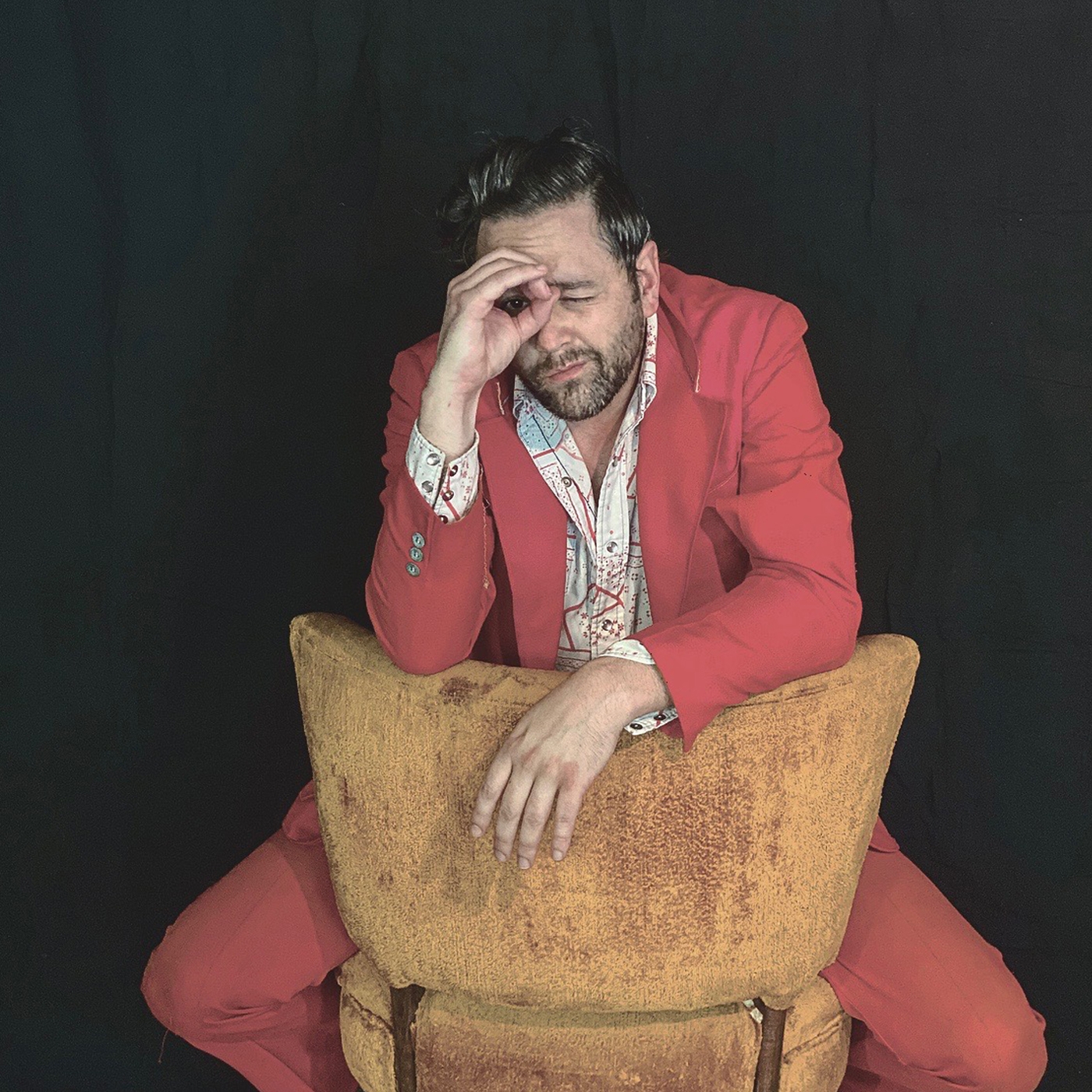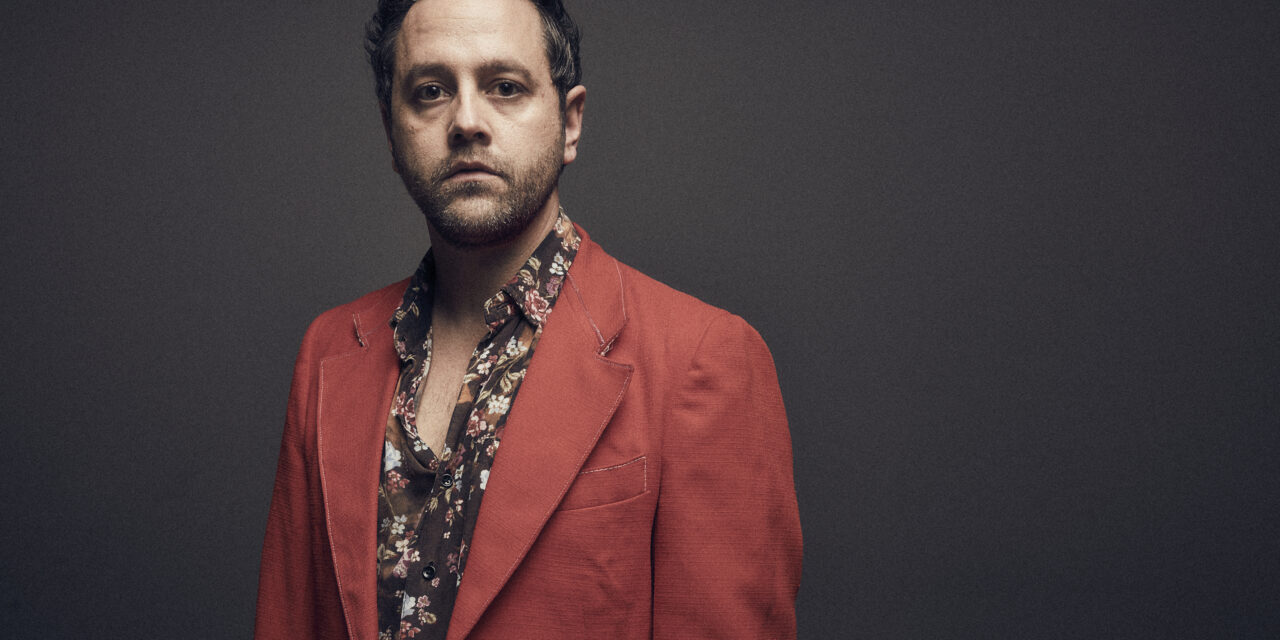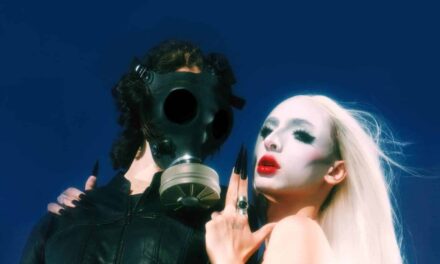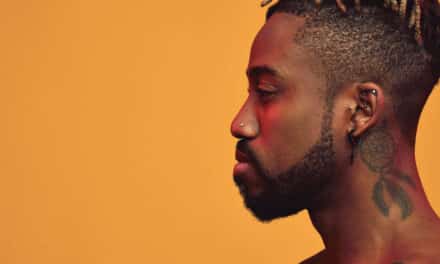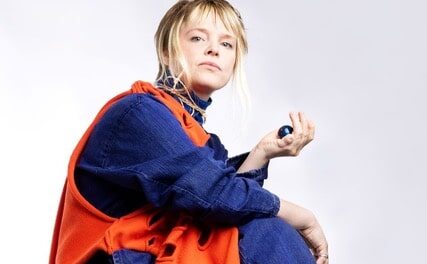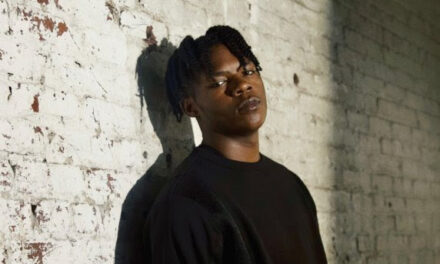It all started with a red polyester suit. The western-style outfit belonged to Joe Garner’s father Charlie, who played bass on the Grand Ole Opry for thirty years, famously backing ‘doodle-doo-doo’ star Del Reeves. After his dad passed, Joe went into the attic of his family home, looking for a keepsake. What he found was an alter ego and the beginning of a rich, cathartic ten-year musical journey that culminates with his latest release, Listen to the Blood.
“I thought, I’m going to put this old suit on and I’m going to be my own version of some of these country guys, like my dad and Del,” says Garner. “That’s how the project began. I thought of the name The Kernal in terms of ‘kerning,’ as in getting the letters straight in a design. Aligning myself is kind of the idea behind the name. I obviously had the love of country music that I got from my dad. But there were definitely some loose ends in our relationship that weren’t tied before he died. That part of it drove me to put myself into this world and try to iron out some demons. Listen to the Blood is the last of a three-album arc, which has been about me trying to prove myself worthy in some ways in a game that my dad had ostensibly mastered.”
With a storyteller’s eye and sly sense of humor that echoes not only his “honorary uncle” Del Reeves, but Tom T. Hall and Roger Miller, Garner delves deep into everything from family dysfunction to road trips to matters of the heart. The music, which he describes with a laugh as “diet country,” embodies the spirit of that genre without any of the slavishness or self-seriousness of much modern Americana. Rolling Stone has called his style “sweetly subversive, intellectual and addictive,” while Lo-Down said “the songs have an air of nostalgia but they sound far from old – modern, yet timeless. ”
Tell us about the genesis of your project. How did you get to where you are now?
I started performing as The Kernal in 2011, a few years after my dad died. He was a Grand Ole Opry musician for 30 years and I was inspired to build on that tradition in my own way after finding one of his Opry performance suits in the attic of my childhood home. I’ve worn that suit for every performance for the past 10 years.
What is the favorite song you wrote and why?
I’m not sure I have a favorite but one I love to sing is “Where We’re Standing” because it reminds me of my dad’s family singing around the piano–he and his siblings had a gospel group I remember hearing when I was young–such intense and emotional singing, gets me every time.
Who are your all time musical icons?
Buddy Holly was the first music I heard that made me want to actually play music. So inventive, lighthearted, and raw. I also came to love David Bowie’s artistry, Curtis Mayfield’s soul, Roger Miller’s whip-smart goofiness, and Tom T Hall’s ability to tell a simple story. The list goes on and on.
What are some things to do to keep your inspiration alive?
I love traveling to stay inspired. When I’m at home every day it’s easy to just hop on the computer or phone, but getting out and putting road under the wheels is the best way I’ve found to look around and see how other people are living–what they like or hate–what they long for or most fear.
Who are you binge listening to these days?
Lately I’ve been listening to John Cale, Brian Eno, Bob Marley, Tristen (current artist I love), and The Fleetwoods
Do you think this release represents you the most out of your whole catalogue?
I think this record shows my growth as a writer and (hopefully) singer, but this record is the 3rd in a trilogy of Kernal albums that I set out to create so I’m not sure which direction I’ll go next–I’m not planning to make any more Kernal albums at this time, but I guess you never know.
What are some major milestones you’d like to accomplish in your career?
I think I’ve probably accomplished them all–of course we’d all like a little more notoriety and cash here and there, but music has taken me out to meet people all over the world and allowed me to share what I wanted to share and that’s the most fulfilling part of it all.
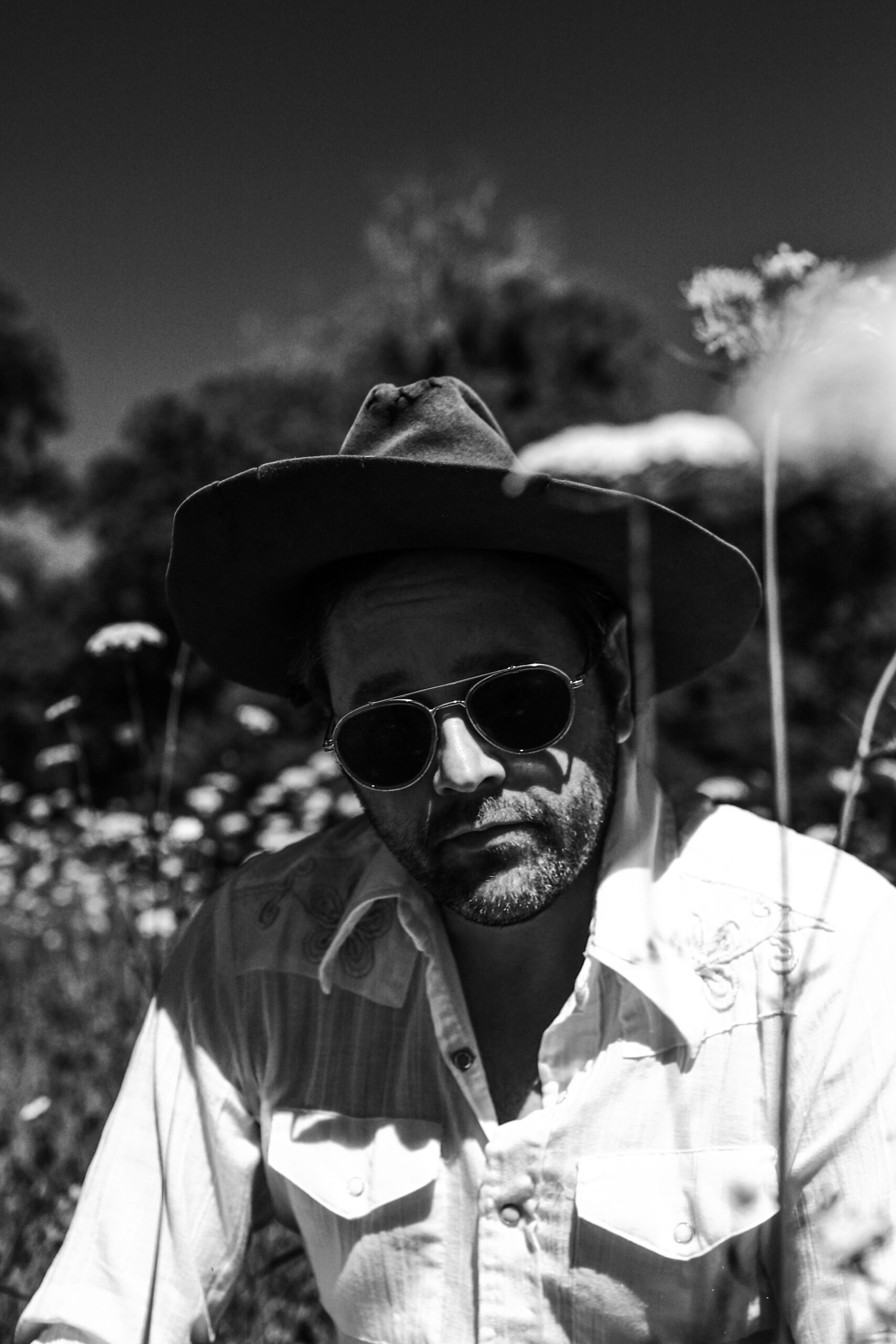
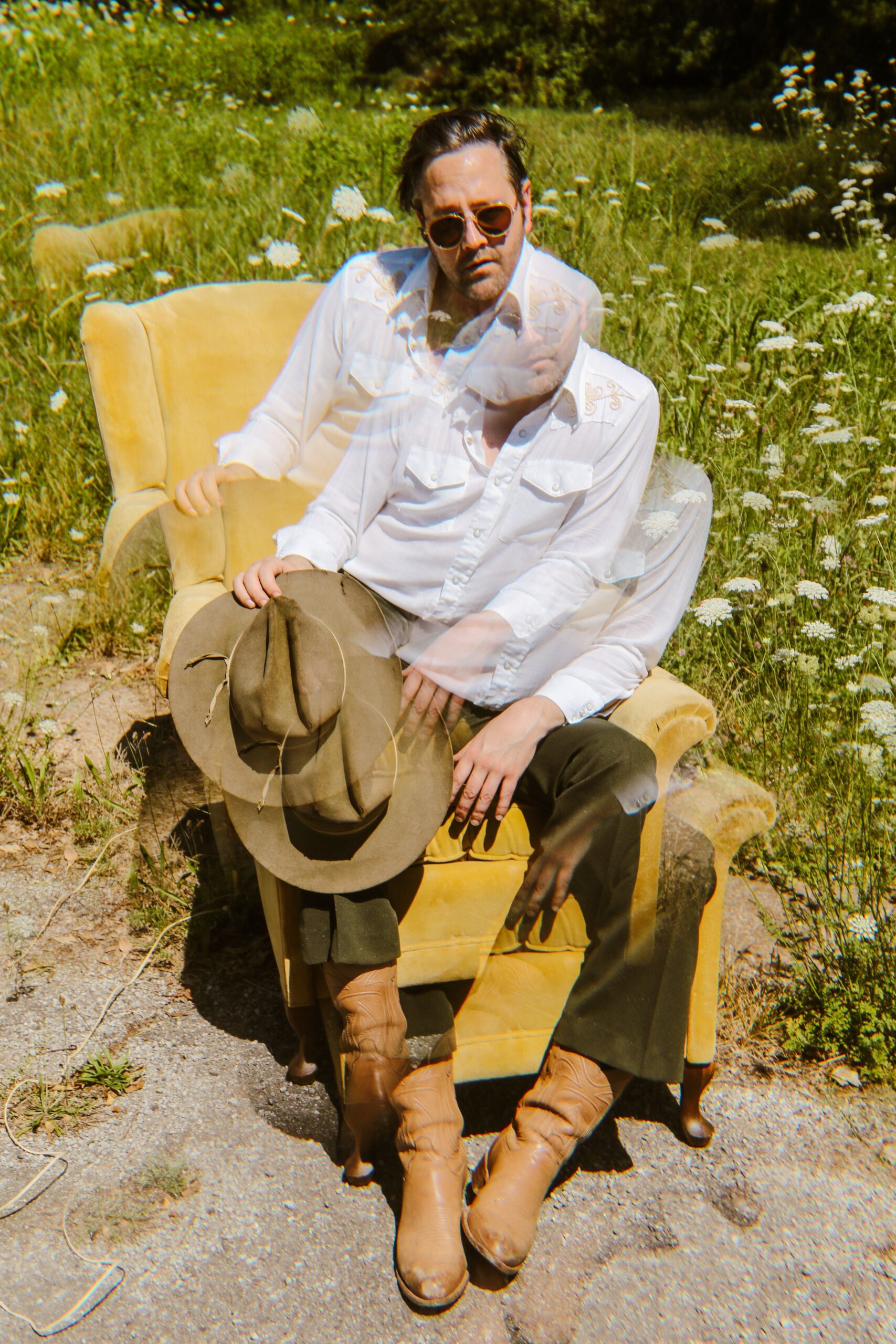
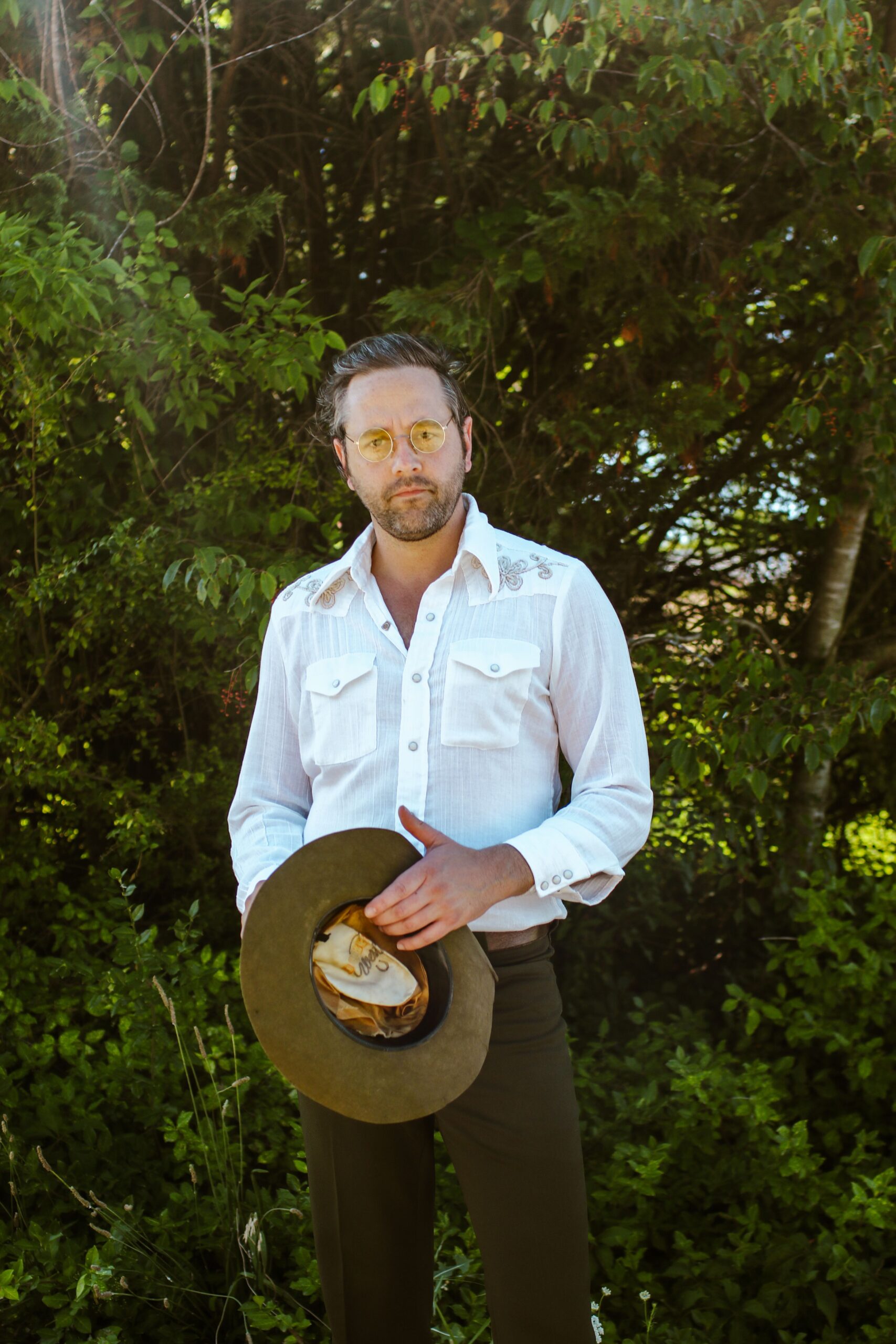
How do you see yourself in 5 years?
I think I’ll just be a normal guy at the grocery store–hopefully letting you ahead of me in the checkout line, especially if your hands are more full than mine.
Who inspires your style and aesthetics?
I’m probably most influenced by the gentlemen I saw when I was a kid–who worked tough jobs in rural settings but still liked to get gussied up with shined boots and starched collars to go buck dancing at the local tavern on the weekend.
What is the achievement or moment in your career you are the most proud of and why?
Performing at the Ryman Auditorium is tough to beat, especially with my dad having such involvement there over the years–I was playing his guitar on that stage too which felt like a full circle kind of moment. Also just making records. I remember thinking that making albums was a total miracle and it kind of is. It’s just cool to have been able to make some myself, I dig that.
What do you think is the best way to make it as an artist nowadays?
Ha, probably be addicted to your social media account just like they want you to be. The more you post, the more exposure you get, that’s how the donut gets made. I think if you’re an artist who wants to be heard then you’re best suited to learn to listen to yourself and to find in yourself what you’re communicating and then just let others eavesdrop instead of trying to fit in with what’s going on around you. I don’t purport to know how to make it as an artist because it’s been pretty uphill the whole way, but I do think that good art comes from going inside rather than allowing yourself to be swept away by too many outside voices.
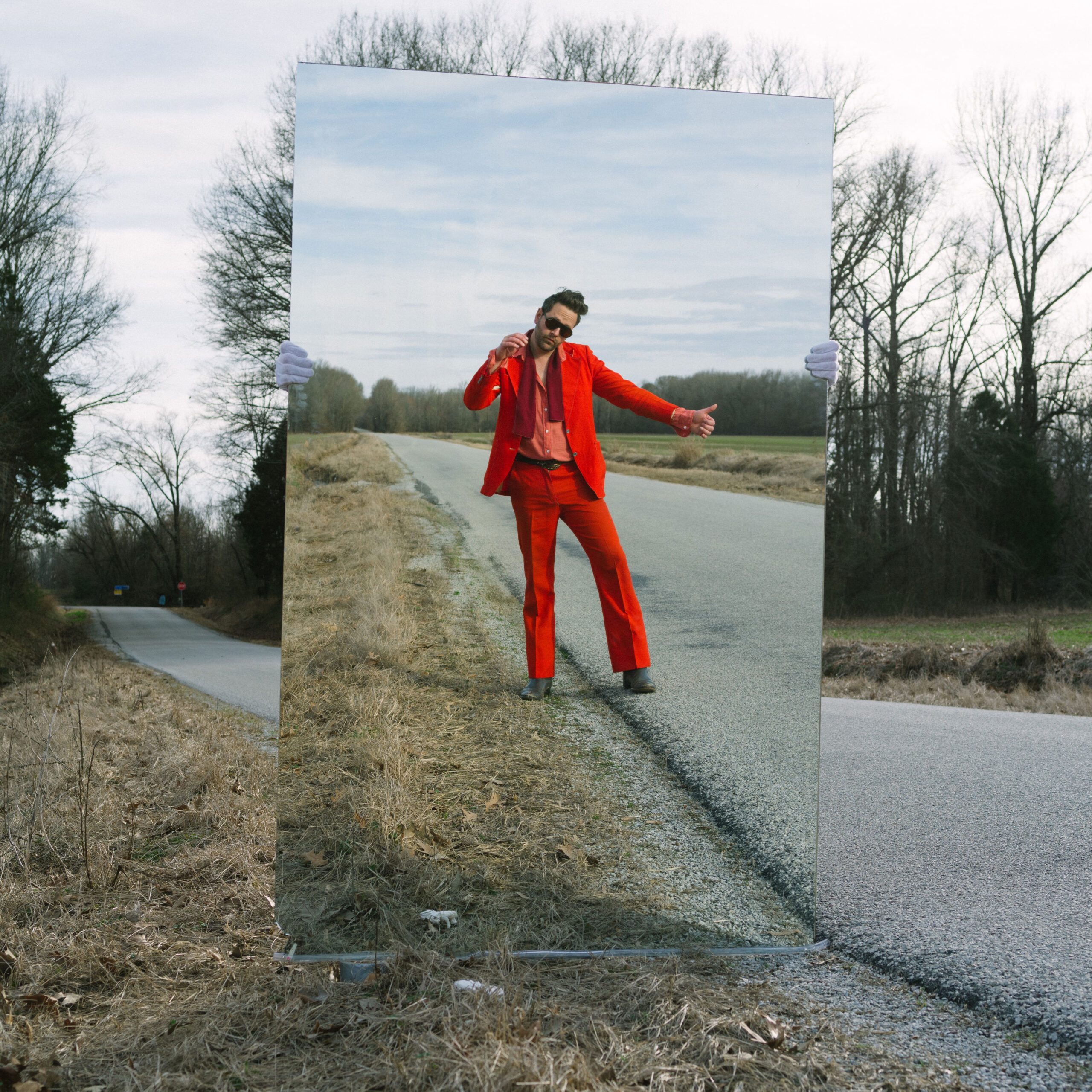
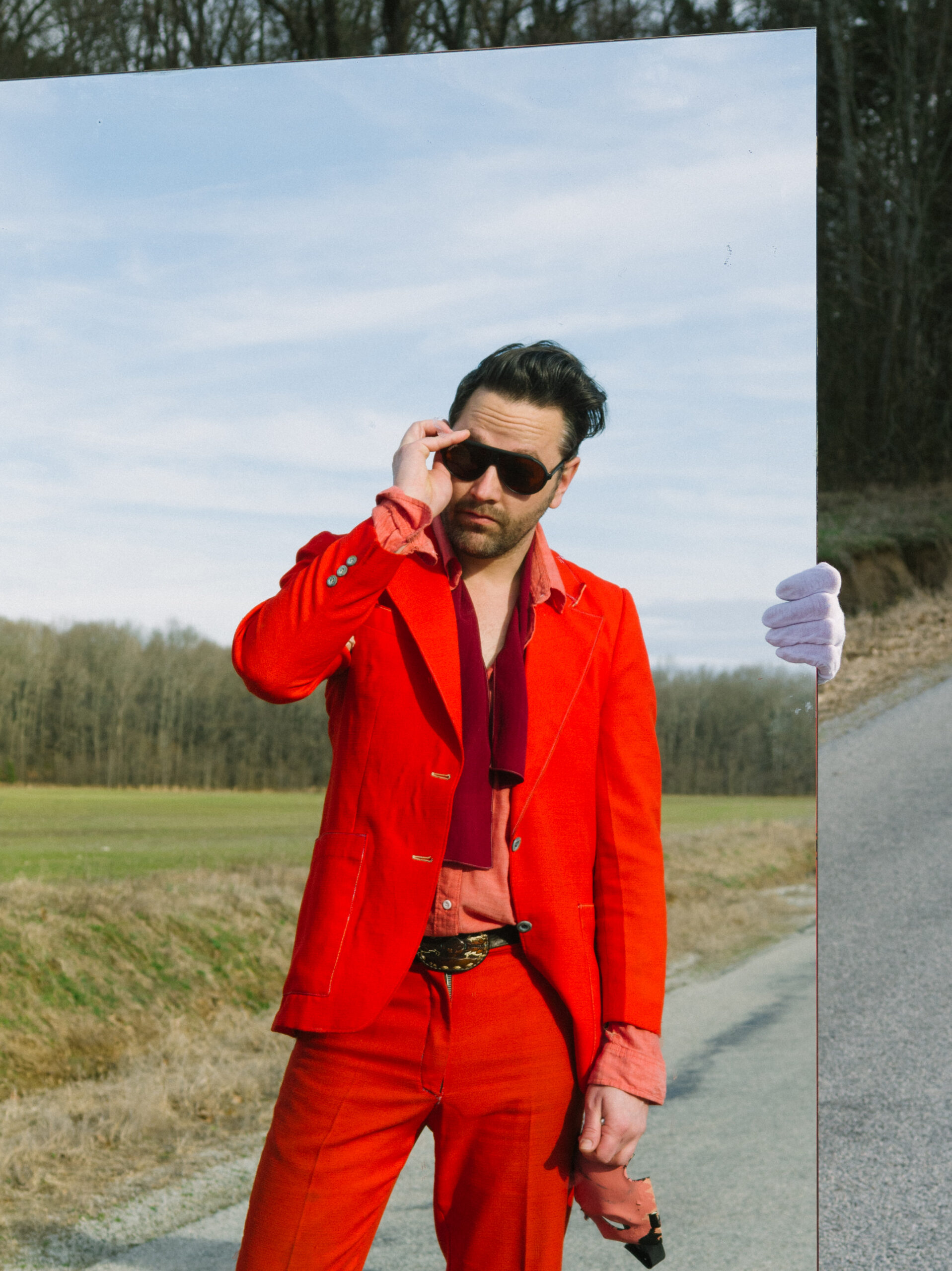
What would you change in the music and entertainment industry especially after this past year?
I don’t know that I’d change anything, but if there were a proposal on the table to scrap it all and start over I’d probably get with that just to see what ideas people would have once those power structures were dissolved.
